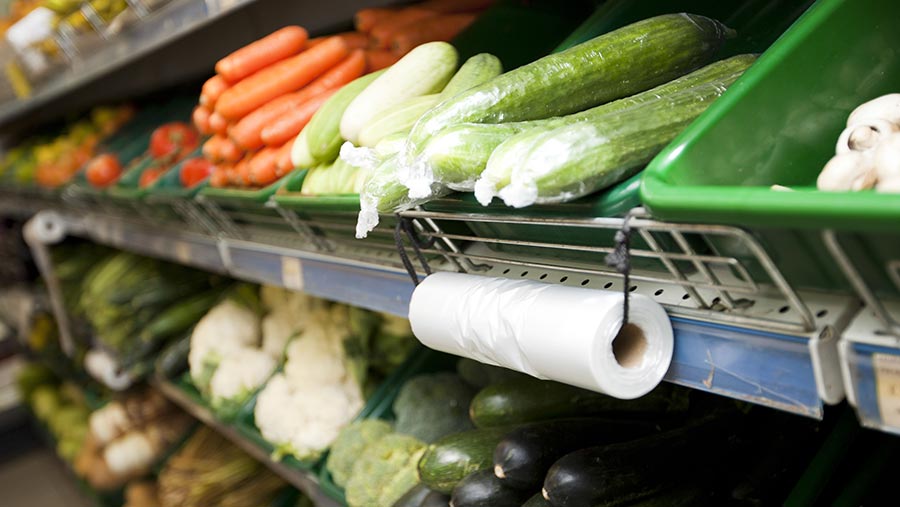Brexit: ‘Less red tape for farmers means lower food prices’
 © Mood Board/REX/Shutterstock
© Mood Board/REX/Shutterstock Brexit will free the UK from costly agricultural regulations – enabling farmers to grow cheaper food, says a think tank report.
The paper from the pro-free-market Institute of Economic Affairs argues that Brexit will free producers from EU red tape which encourages food prices to rise.
The think tank argues pressure groups and other non-government organisations have been able to lobby for increases in EU regulation – which has proved costly for farmers.
See also: UK farmers face ‘punishing’ Brexit tariffs, warn Lib Dems
Additional bureaucracy in the areas of food standards, animal welfare and the environment has created deadweight costs which are misaligned with consumer preferences, it says.
“The precautionary principle provides non-farming interest groups with a pseudo-official means of influencing policy,” says the paper.
“The result is a drift towards overregulation and regulatory failures which are in conflict with the efficient working of the single market.”
Restrictions
The paper argues that the potential costs of further environmental restrictions would add costs of up to £7.5bn had the UK chosen to remain within the EU.
It says the CAP is the EU’s most expensive policy – and its most complex and interventionist.
Its remit covers a multitude of areas, from biodiversity to food safety to environmental protection, all of which have led to a huge regulatory burden on the food industry.
The paper – Ploughing the Wrong Furrow: the costs of agricultural exceptionalism and the precautionary principle – was written by former NFU chief economist Sean Rickard.
Prior to the UK referendum on 23 June, Mr Rickard told farmers they would be “barking mad” to leave the EU.
The paper argues regulation has grown since the 1990s as agricultural subsidies have been increasingly tied to environmental requirements imposed on farmers.
This leads to costs for consumers and taxpayers alike, it says.
Compliance
Official figures shows compliance with existing agricultural regulations costs nearly £600m/year in England alone, said the paper.
But it added the true cost is higher, because these figures fail to take into account longer-term costs arising from the impact of regulations on competitiveness and food affordability.
IEA director general Mark Littlewood said: “EU member states face staggering food price rises unless the march of increased regulation is halted.
“The UK is fortunate that it now has the opportunity to repatriate control of its farming regulations.
“It’s crucial that decisions stem from good scientific evidence, and pay attention to consumers’ interests and the potential crippling costs that overregulation can have in pushing up food prices and the cost of living.”
